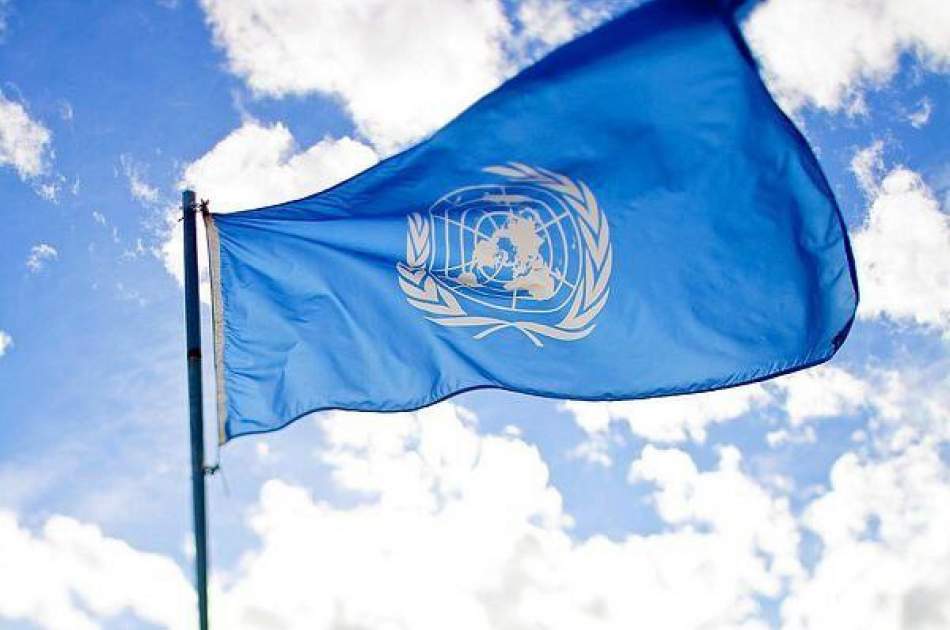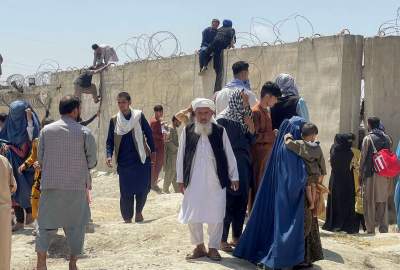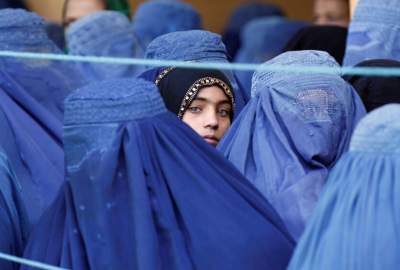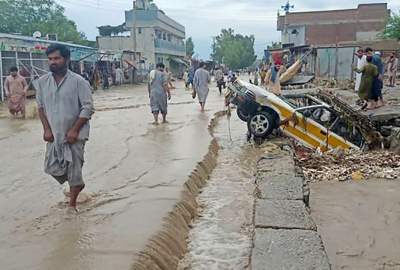The United Nations Human Rights Council says: Washington's sanctions against Tehran are in conflict with international laws.
Publish dateWednesday 15 February 2023 - 15:10
Story Code : 265549
Afghan Voice Agency (AVA): The United Nations Human Rights Council announced on Tuesday (February 14) citing the findings of two special rapporteurs of this body regarding Iranians suffering from thalassemia, Washington's sanctions against Tehran and their implementation in third countries with International laws are in conflict.
Alena Dohan and Obiora Okafor stated in a statement: The legality of unilateral US sanctions against Iran is questionable according to international laws, and the legality of their extraterritorial implementation is the same. Still, companies outside the United States consider themselves obliged to comply with them (sanctions) to avoid facing legal or commercial consequences.
According to Russia Today, Dohan, and the special reporter on the negative effects of unilateral coercive measures on the enjoyment of human rights. Okafor, an independent expert on human rights and international solidarity, discussed how the unilateral sanctions of the United States after its withdrawal from the JCPOA in 2018 affected Iranians suffering from the hereditary blood disorder thalassemia. Check out.
According to this report, Iran has a large number of thalassemia patients who need specialized medicine while receiving blood. These drugs are produced by the Swiss company Novartis, whose ingredients are supplied by the French company Roquette Freres.
While Washington is considering heavy fines for companies that sell drugs to Iran that cause them to over-comply with sanctions, the two experts added that humanitarian exemptions for medical goods in US sanctions laws are complex and unclear. According to them, even when delivery is permitted, manufacturers, shippers, insurers or banks are reluctant to do business with Iran for fear of aggressive US sanctions and punishment. This has caused fear, pain and early death among thalassemia patients.
These two officials asked the US government to remove any obstacles to financial transactions with health purposes, to effectively implement humanitarian exemptions, and not to impose secondary sanctions on medical exports to Iran. At the same time, they asked other UN members to adhere to their human rights obligations.
Earlier, Dohan pointed out the effect of sanctions on the increase in prices and their destructive effect on the health and life of the Iranian people and said that banning the import of medicines has caused many problems in Iran and this is a violation of civil rules.
During his visit to Tehran, he said: All the sanctions that have been imposed have caused many problems in terms of banking and money exchange, and caused the loans that Iran received to face problems, and many problems even for the nationals of other countries in Iran. Created. Since the banking embargo has made them buy from the third country, this has caused the prices to increase and has caused many problems in the case of medicine.
By saying that he admires the efforts of the Iranian government in reducing the effects of sanctions, he emphasized once again that unilateral sanctions cannot be justified in any way and added: These sanctions have prevented the sending of humanitarian aid to Iran and the sending of life-saving drugs due to the ban on their transfer.
This is while a number of Afghan immigrants in Iran are suffering from this disease and these sanctions have caused many problems to the patients and their families.
Alena Dohan and Obiora Okafor stated in a statement: The legality of unilateral US sanctions against Iran is questionable according to international laws, and the legality of their extraterritorial implementation is the same. Still, companies outside the United States consider themselves obliged to comply with them (sanctions) to avoid facing legal or commercial consequences.
According to Russia Today, Dohan, and the special reporter on the negative effects of unilateral coercive measures on the enjoyment of human rights. Okafor, an independent expert on human rights and international solidarity, discussed how the unilateral sanctions of the United States after its withdrawal from the JCPOA in 2018 affected Iranians suffering from the hereditary blood disorder thalassemia. Check out.
According to this report, Iran has a large number of thalassemia patients who need specialized medicine while receiving blood. These drugs are produced by the Swiss company Novartis, whose ingredients are supplied by the French company Roquette Freres.
While Washington is considering heavy fines for companies that sell drugs to Iran that cause them to over-comply with sanctions, the two experts added that humanitarian exemptions for medical goods in US sanctions laws are complex and unclear. According to them, even when delivery is permitted, manufacturers, shippers, insurers or banks are reluctant to do business with Iran for fear of aggressive US sanctions and punishment. This has caused fear, pain and early death among thalassemia patients.
These two officials asked the US government to remove any obstacles to financial transactions with health purposes, to effectively implement humanitarian exemptions, and not to impose secondary sanctions on medical exports to Iran. At the same time, they asked other UN members to adhere to their human rights obligations.
Earlier, Dohan pointed out the effect of sanctions on the increase in prices and their destructive effect on the health and life of the Iranian people and said that banning the import of medicines has caused many problems in Iran and this is a violation of civil rules.
During his visit to Tehran, he said: All the sanctions that have been imposed have caused many problems in terms of banking and money exchange, and caused the loans that Iran received to face problems, and many problems even for the nationals of other countries in Iran. Created. Since the banking embargo has made them buy from the third country, this has caused the prices to increase and has caused many problems in the case of medicine.
By saying that he admires the efforts of the Iranian government in reducing the effects of sanctions, he emphasized once again that unilateral sanctions cannot be justified in any way and added: These sanctions have prevented the sending of humanitarian aid to Iran and the sending of life-saving drugs due to the ban on their transfer.
This is while a number of Afghan immigrants in Iran are suffering from this disease and these sanctions have caused many problems to the patients and their families.
avapress.net/vdcaymnuo49nim1.tgk4.html
Tags
Top hits












